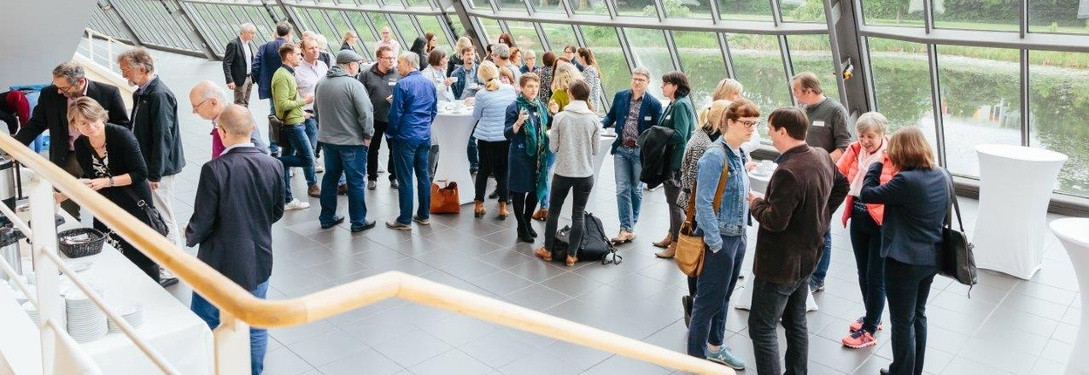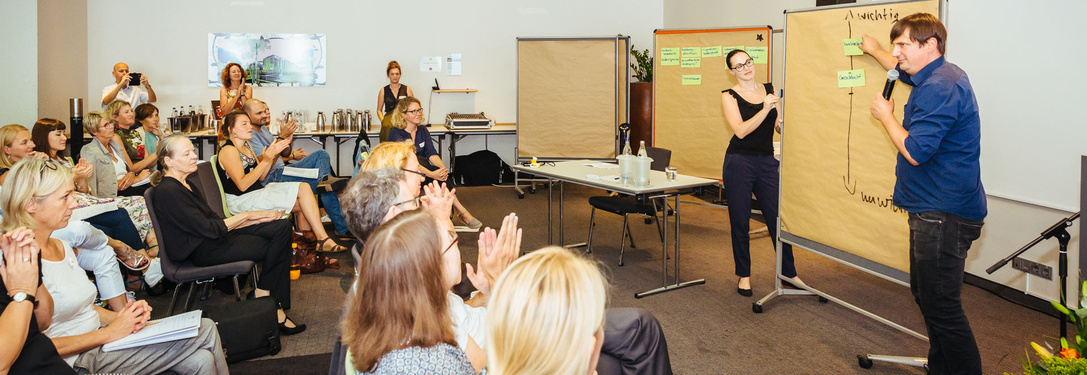The aim of “kinderstark - NRW schafft Chancen”
The state initiative is based around a policy of prevention, which aims to give all children the same opportunity to enjoy a good and healthy upbringing, have access to education and participate in society – regardless of their social background and the financial situation of their parents.
Early, preventive support aims to improve the well-being and life perspectives of children and young adults and promote equal opportunities. Municipalities play a key role in the field of prevention, as they take on significant tasks in the area of child and youth welfare and help to design the framework conditions for the daily lives of families and children. The networking and collaboration of the relevant stakeholders in the municipalities and social areas should be promoted, with the aim of increasing the effectiveness and efficiency of the measures and making it easier to better reach children and young adults. This requires appropriate prevention chains.
Why prevention chains?
Many different specialists and institutions within the municipalities take on comprehensive tasks to ensure that children and young adults can enjoy a positive upbringing. Yet in many cases it is not possible to reach those families who most need help. Lots of resources are wasted without success and offers cannot be communicated to those people who should be reached as a priority.
A “prevention chain” can be established by better coordinating the offers and strategically aligning the use of resources (“handle unequal things unequally”), which will make it possible to reach parents during the pregnancy stage and accompany and support children from birth through to them starting work in a needs-based manner. All stakeholders in the municipalities are required to collaborate and cooperate systematically to offer appropriate and coordinated assistance. The primary goal is to connect the areas of health, education, child and youth welfare, integration, urban planning and social issues with one another to support children and their families in the most appropriate way possible. Establishing prevention chains in the municipalities constitutes the start of a cross-functional communication process, which makes it possible to act together and also perform services aimed at families that were previously difficult to reach. The required appropriateness and suitability can only be achieved to the extent that the living conditions and perspectives of children, young adults and families themselves are appropriately incorporated into strategies and measurement planning. Because support and assistance measures can only ever be effectively performed jointly by specialists and the intended recipients (“co-production” of social services).
The work of the municipalities was accompanied and supported by the “Coordinating Body for Prevention Matters” at the “Institut für soziale Arbeit e.V., Münster” together with specialist assistance from the state youth welfare offices. It acted as a central point for collecting information from the participating municipalities. Regular exchanges take place within a learning network to harness the different experiences for the benefit of everyone. The individual competence of the full-time coordination specialists from the participating municipalities is strengthened through consulting and training.

Learning network
The Coordinating Body for Prevention Matters brings together the full-time coordination specialists from the municipalities participating in the state initiative in a so-called learning network. All coordination specialists meet regularly, either in person or virtually, and are also otherwise in contact with one another.
The following takes place within the learning network:
- An honest and open exchange among the coordination specialists about successes but also obstacles in developing a communal prevention strategy and consideration of the reasons
- Provision of specialist input and information on recommended guidelines for strategic implementation in the municipalities
- Development of innovative and feasible solutions for current and future challenges (e.g. school inclusion, integration assistance, district development, linking of parenting support / preventive assistance, utilisation of funds for education and participation etc.)
- An exchange of successful examples of good practice overseen by the Coordinating Body for Prevention Matters (necessary given the range of approaches and variety of municipalities)

